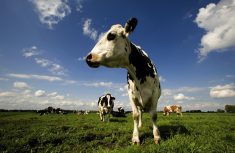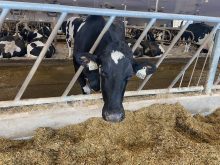Washington | Reuters — Failing to curb emissions of nitrous oxide will make it impossible to meet the main goal of the Paris climate agreement to keep global warming to 1.5 degrees Celsius, according to the first major global assessment of the pollutant released on Thursday.
“Ambitious action to reduce nitrous oxide emissions could move the world closer to meeting a wide range of global climate, ozone and other environmental and human health goals,” said the assessment, published by the Climate and Clean Air Coalition of over 180 governments, NGOs, and international organizations.
Read Also

Pea, lentil outlooks have some positive signals – Penner
As pulse growers consider what to plant this spring, Chuck Penner of Leftfield Commodities Research said there is some optimism in the Canadian pulse market. Penner gave a presentation at the Saskatchewan Pulse Growers meeting in Swift Current on Feb. 4.
Nitrous oxide is the third most prevalent greenhouse gas and the worst ozone-depleting gas. Emissions, driven primarily by the agricultural use of synthetic fertilizers and manure, have increased globally by 40 per cent since 1980, and are on pace to rise 30 per cent over 2020 levels by 2050, the report said.
The Global Nitrous Oxide Assessment (N2O) report is similar to the 2021 Global Methane Assessment, which showed that human-caused methane emissions can be reduced by up to 45 per cent this decade and laid the groundwork for 150 countries to commit to the Global Methane Pledge to curb those emissions by 30 per cent by 2030.
Taking global action to reduce emissions of nitrous oxide (N2O) could avoid the equivalent of up to 235 billion metric tons of carbon dioxide emissions by 2100, it said.
A U.S. State Department official told Reuters earlier this year that slashing N2O emissions from production of fertilizers or the production of materials like nylon is cheap, costing as little as $10 per metric ton (C$13.90) through projects using the voluntary carbon offset market.
The U.S and China are the biggest emitters of the greenhouse gas.














